All aren’t equal to government

Protected and unprotected: an oblique line of the government's preference separated the two.
One group of people is the responsibility of the government and the other group is not. One group is protected by the government and the other left in the cold. Privileged ones are the public servants and overlooked ones the private employees.
The line of divide was always there, and it only got embarrassingly prominent in the onslaught of the ongoing coronavirus pandemic. As budgetary measures were laid out today, the disparity looks more prominent than ever.
It's a job that very few in the world's ivy league of economists would have dared to do, announcing the budget of a country caught in the middle of a pandemic that brought the economy down to its knees in the last four months. Mustafa Kamal is a feisty finance minister in that sense, especially when every hand extended in his direction is for help.
No other finance minister in our living memory faced a crisis of this magnitude. Everybody, rich and poor alike, is seeking help from the government, which is also extending its hands for help from foreign lenders, the central bank (by asking it to print taka) and black money-holders.
If we analyse the government response to the health and financial security for all in the lead-up to the pandemic and beyond, we can see the line of divide all too clearly. The government cared most, if not only, for the public staff and least for the private staff.
Kamal deserved big kudos for protecting public employees financially four months into the crisis. Proper healthcare is understood to be off the list under this circumstance; but he certainly did more than he could have to ensure financial security for 14 lakh government employees (Tk 5,125cr in salaries and benefits a month) and over 6.5 lakh pensioners (Tk 1,917cr a month).
No austerity was called into practice. Rather, he was found to be ever obliging to the government's additional financial response to contagion compensation for public employees: up to Tk 50 lakh for death and up to Tk 10 lakh for infection. The police, the other frontline heroes besides medicare staff in our fight against the contagion, would get an additional compensation up to Tk 15 lakh from the fund of IGP (Inspector General of Police).
We all are grateful to the services of our frontline warriors -- the doctors, nurses and police; and the highest possible compensation is what a good government must make available to them. Our government is doing it, but only for those who serve the government.
Twenty-five doctors are among the over 1,000 dead due to coronavirus disease so far. Of the 25, eight doctors got themselves infected and met death while treating patients at private hospitals. Yet, they were not considered for compensation, just because they served the people from the other side of the line of divide.
There are another group of front-liners who remained in the background of all the news they generated for the nation, exposing themselves daily to pandemic risks. They kept the people and the government informed, but went on to leave their families in uncertain future. Seven journalists -- four due to coronavirus and three with symptoms -- died so far and 281 ended up with infection. No government compensation reached their families, and payment of overdue salaries was not made by some of their employers even after their deaths. Some respite, however, came from an unexpected source, with the chief of police offering Tk one lakh for each of the families from his personal fund.
The economy is reeling from the shockwaves of the pandemic, which is going to change the landscape of businesses and job opportunities for good. How the businesses would restart and recover from the loss is a billion-dollar question. So, bonus-cut, salary-cut, privilege-cut and job-cut are expected to be the issues in Bangladesh, at least for a year or two.
But the worries and uncertainties to grapple with are only for the 75 lakh people who are serving on the other side of the divide, in the private sector.
It should have been a huge obligation for the government, the finance minister to be precise, to take extra care of the 22 lakh tax-payers, of whom 86 percent is from the private sector.
Isn't it unfair of the government to shield the financial security of only the public employees, of whom only 3 lakh are tax-payers? But those who pay tax, working in the private sector or running private businesses, are left in a quagmire. They are the ones who would face the job-cut, salary-cut or go out of the businesses.
No clear outline could be made of the budget speech and documents about Kamal's tab on the employment protection or creation, incentive or support for private sector employers to retain jobs and unemployment benefits. Would these tax-payers not get any COVID-19 respite from the government? If the tax-payers don't get protection during their crisis, why would they pay tax then?
A crisis like this demanded an out-of-the-box, pragmatic policy from Kamal. And, it wasn't delivered, at least not yet.
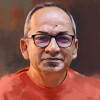
 For all latest news, follow The Daily Star's Google News channel.
For all latest news, follow The Daily Star's Google News channel. 

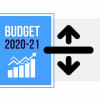
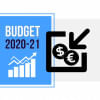
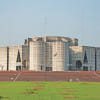
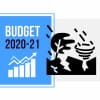
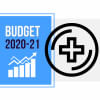


Comments